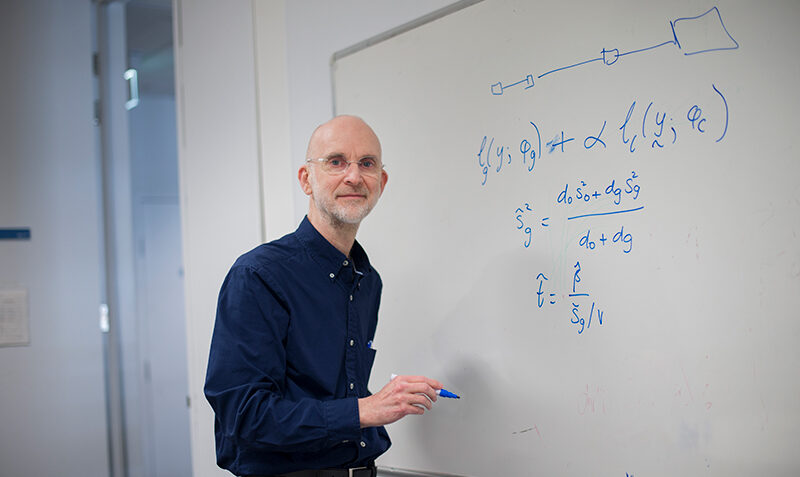The Bioinformatics Tutor PDFs
Table of ContentsThe smart Trick of Bioinformatics Tutor That Nobody is Talking About4 Simple Techniques For Bioinformatics TutorOur Bioinformatics Tutor IdeasThe 15-Second Trick For Bioinformatics TutorAll About Bioinformatics Tutor
Of the overall individuals associated with the training, 80% were students from public greater education organizations, while the remaining 20% came from exclusive establishments. To get approved for a certificate of participation, pupils were needed to go to at the very least 90% of the total training hours. As an outcome of this requirement, an excellent 95% of the participants successfully obtained their certifications, having not only met the minimum attendance criteria however likewise completed all assigned activities throughout the training.
Throughout the height of the COVID-19 pandemic, especially in between June and August 2020, the project team was charged with organizing specialized training in bioinformatics. This training was particularly aimed at trainees from the research study team Core for Study in Applied Computer at the Federal University of Pará (UFRA) The adaptation to remote understanding systems as a result of the pandemic created a possibility to discover new mentor methods and electronic devices that improved both reach and performance.
This training course was developed to supply an obtainable yet extensive review of Artificial Knowledge strategies, specifically as used in bioinformatics (Bioinformatics Tutor). This online style enabled engagement from students throughout Brazil, numerous of whom might not have had the possibility to attend in-person sessions.
More About Bioinformatics Tutor
Roughly 50% of the complete training hours were committed to sensible tasks where trainees built smart designs and applications in an array of clinical domains, consisting of genetics, molecular biology, and environmental data analysis. These systems enabled trainees to engage in real-time data manipulation, version training, and algorithm trial and error.
The course brought in 80 participants in total amount. Sixty of them were affiliated with numerous college institutions in the state of Pará, while the continuing to be twenty originated from establishments located in 5 various other Brazilian states. This broad geographical depiction highlighted the national rate of interest in bioinformatics and the expanding demand for specialized abilities around. By presenting Artificial Intelligence in a appropriate and functional context, the campaign offered to bridge the space in between concept and real-world application, offering trainees with a strong structure for future study or employment in the field.
The training effort formed part of a more comprehensive scholastic outreach initiative called the Bioinformatics on the Roadway task. This project has, throughout the years, introduced loads of trainees to the globe of bioinformatics and computational biology. The occasions held under this umbrella effort have occurred throughout numerous areas and years, as summarized in Table 1 (Listing of events, locations, years, and overall varieties of pupils and instructors)
Among the most exceptional results of the Bioinformatics when traveling initiative has actually been its payment to the growth of decentralized research study groups. Numerous of these teams, originally brought together by their participation in training events, have considering that taken place to create independent scientific study in cooperation with regional scholastic institutions. The training not only fostered scientific thinking within the context of bioinformatics but likewise triggered collaborative relationships that extended past the training atmosphere. These partnerships have brought about raised neighborhood clinical efficiency and added meaningfully to the development of the broader bioinformatics neighborhood in Brazil.
Bioinformatics Tutor Things To Know Before You Get This
The project itself was conceived and organized by megabytes and RR, that managed the preparation and application of each step. Lectures were delivered by a multidisciplinary team including megabytes, FA, EF, KP, JS, DM, SN, LP, LG, A/C, rr, and ih. The very same group, excluding IH and RR, likewise served as tutors for the sensible training components. Funding for the task was provided through the grant 88887.200562/ 2018-00 from CAPES. The authors prolong their gratefulness to everyone who contributed to the realization of this job, whether straight or indirectly, since its creation.
The Federal College of Pará's Workplace of Research (PROPESP/UFPA) likewise supplied financial backing, particularly for the production of the last manuscript. The authors proclaim no industrial or economic problems of passion that can have influenced the research study. Moreover, all analyses and opinions revealed in this short article are solely those of the authors and do not necessarily show those of their respective organizations, the author, editors, or reviewers associated with the publication process.
Bioinformatics Tutor Fundamentals Explained
From an instructional viewpoint, the mentor strategy made use of in the training was deliberately interactive. Classes were carried out in a way that encouraged trainee engagement and conversation, exceeding rote memorization to check out just how concepts are created, applied in life, and examined in academic setups. The training viewpoint concentrated on supporting both strong and having a hard time trainees, supplying individualized assistance, and building self-confidence with continual mentorship and persistence.

Each group, being composed of roughly 36 participants, was sustained by three mentors-- a lot of whom were postdoctoral scientists with specific proficiency. These coaches not just assisted make the team tasks yet also promoted their implementation, ensuring that each study question was both relevant and properly tough. The objective was to offer a naturally sensible context that his explanation participants might discover via flexible objectives and accessibility to curated datasets.
For additional understandings right into the method and end results of this project-based discovering method, readers are guided to S1 Text, which includes in-depth summaries of the instructional structure, analysis approaches, and project themes made use of in the training sessions.
Not known Incorrect Statements About Bioinformatics Tutor
Of the overall participants included in the training, 80% were students from public greater education establishments, while the remaining 20% came from private institutions. To qualify for a certification of involvement, pupils were needed to participate in at the very least 90% of the complete training hours. Significantly, beyond the pupils who signed up in the training sessions, 7 experienced trainers visit took part in here delivering the programs, while 3 specialized research teachers worked with the overall training procedure. Roughly 50% of the complete training hours were devoted to useful tasks where pupils developed intelligent versions and applications in a range of scientific domain names, including genes, molecular biology, and environmental information evaluation. The training not only promoted clinical thinking within the context of bioinformatics yet additionally stimulated joint relationships that expanded past the training setting.